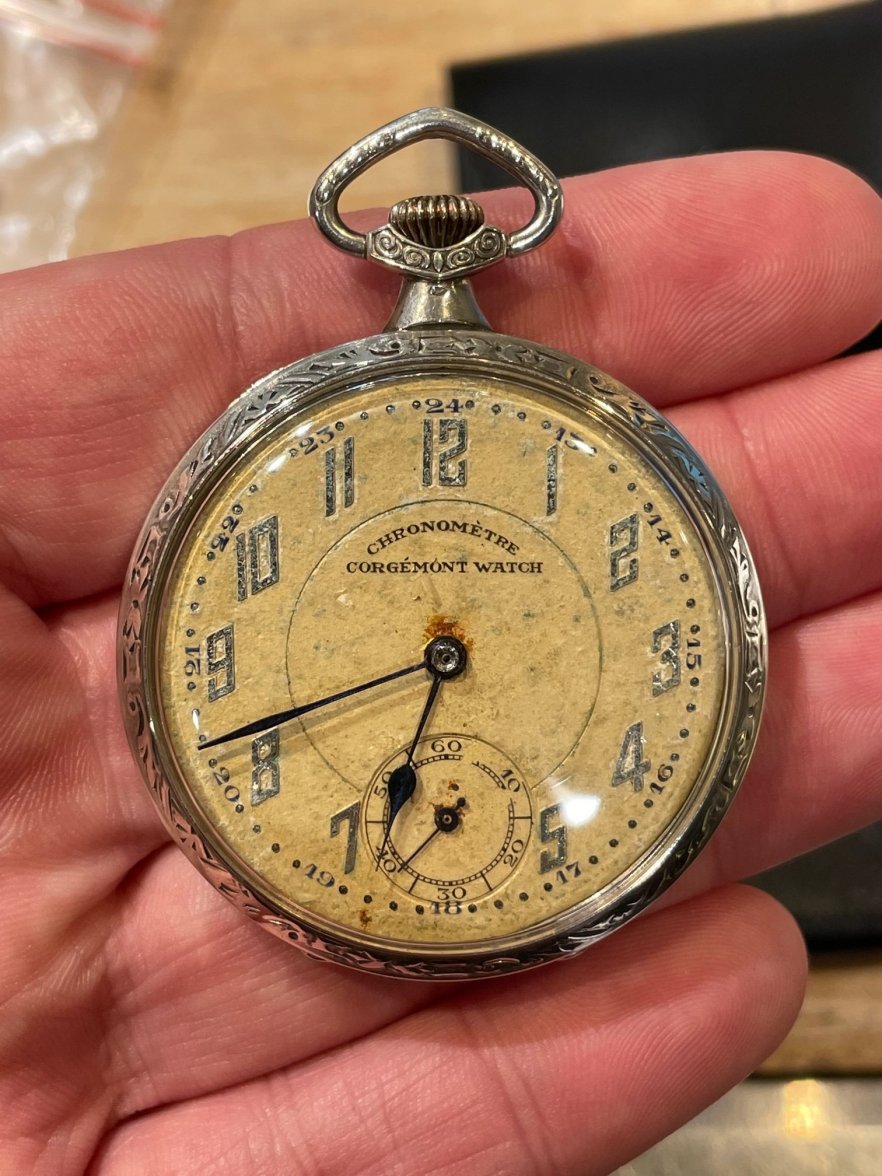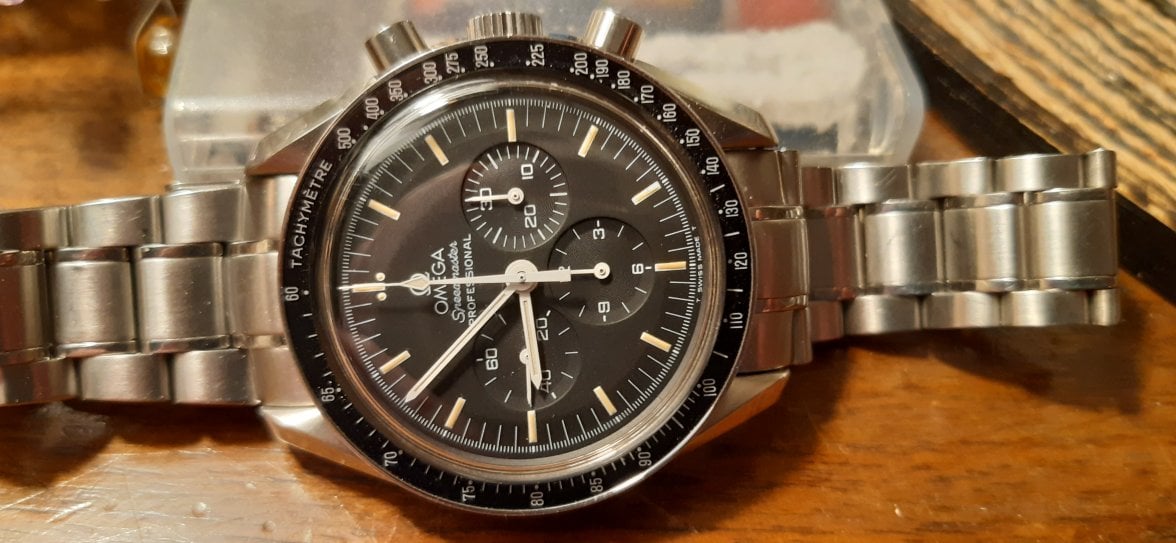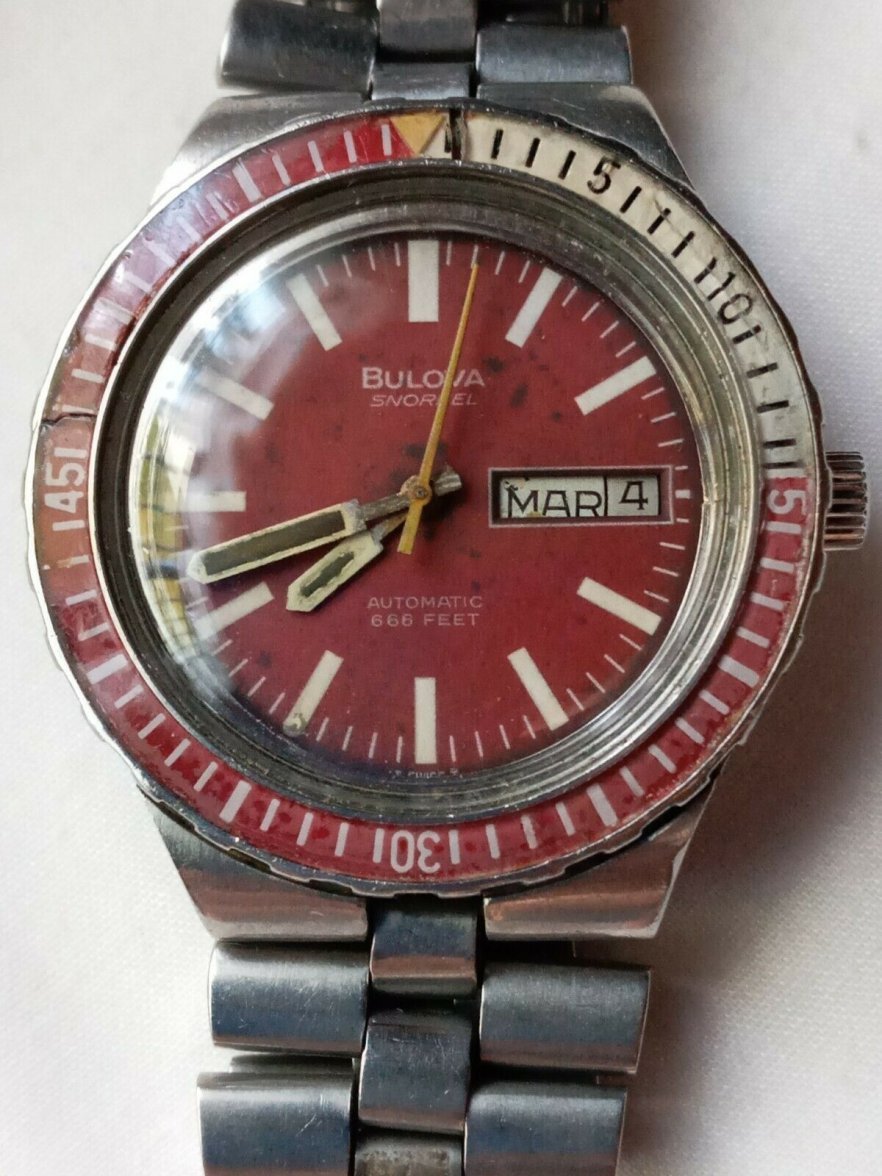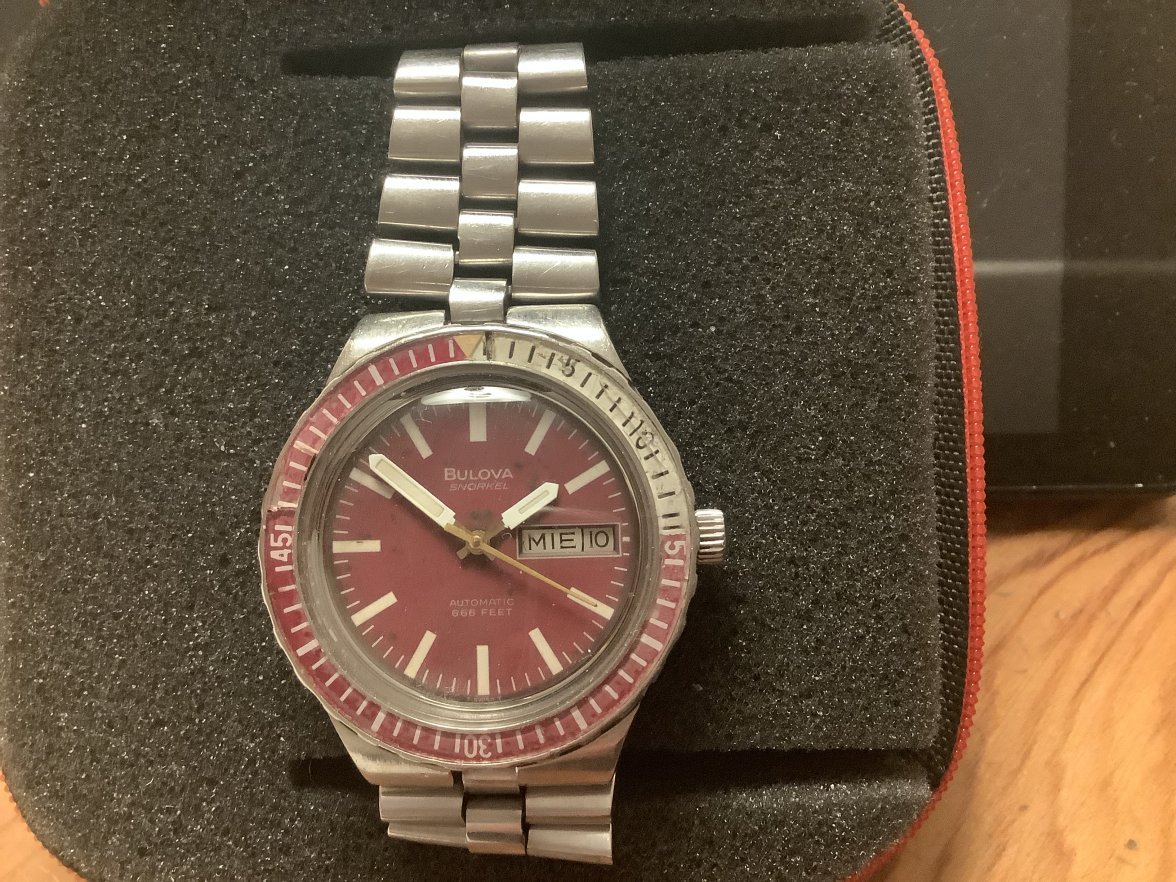RoadRunner73
·Well Guys,
It's probably been discussed here already, but I am new on the Forum, and not yet very familiar with the searches so I haven't been successful in finding a topic on that so I'll give it a try now :
I'm still very new in the vintage watch things, and one of my main topics is whether vintage watches should undergo a regular (every 5-6 years ?) service or not ; I questioned many different specialists, read a lot, and it's still not clear to me;
My local watchmaker says that as long as a watch is working accurately, one should avoid unnecessary case openings and manipulations of the movement - parts - dial - hands, etc... in consideration of the potential risk of harming some parts; So does the watchmaker of one of the reputed Swiss watch brands whom I talked to recently, who says that as long as the watch is working properly, why should a service be made?
On the other hand, Desmond, well known for his passion for the Connies, has had a very straightforward position on that : high precision movement need to be cleaned, oiled, and of course regulated to guarantee a smooth functioning and avoid wear of some parts to affect other parts, and thus increase the amount of repairs. Another official watchmaker found on the OMEGA website, and who has restored a Chopard "Tank" recently considers that a service every 5-6 years on a mechanical movement is necessary ; of course, he's official, of course it's in his interest to lead people to spend money on watch services, but is that all ?
In the Industry where I have worked for nearly 40 years, it says that preventive maintenance is essential, as it will reduce the risk of unexpected failure ; I can very well understand that in a world that does not work together well with loss of production or of turnover, but what about watches ?
I can understand that dust, lack of proper lubrication may affect the performance of a watch, but why doing it if the watch is accurate ? My 25 years old Moonwatch for example, bought about 1 year ago, has probably never been serviced according to several "experts" who have checked it; it's been regulated though after I bought it, and accuracy rate is back from a past +50 sec/day to an approx. -2/+4 sec/day, closely followed-up now nearly every day since 4 months. And since it's got Tritium hands in pristine condition, I am very reluctant to have it serviced, for fear that something wrong might happen to them...
So where's the right way of acting ? What about the collectors, who own 10-20 or more vintage watches ?
And me projecting buying a 60 or 70 year old Connie : should I trust the guy claiming that the watch has been fully serviced, or should I rather look for a watch that hasn't been serviced for ages, and get a full service for the price difference ?
I know nothing about how to keep vintage watches in good conditions, so your opinions, pros/cons are highly welcome on this delicate topic !
It's probably been discussed here already, but I am new on the Forum, and not yet very familiar with the searches so I haven't been successful in finding a topic on that so I'll give it a try now :
I'm still very new in the vintage watch things, and one of my main topics is whether vintage watches should undergo a regular (every 5-6 years ?) service or not ; I questioned many different specialists, read a lot, and it's still not clear to me;
My local watchmaker says that as long as a watch is working accurately, one should avoid unnecessary case openings and manipulations of the movement - parts - dial - hands, etc... in consideration of the potential risk of harming some parts; So does the watchmaker of one of the reputed Swiss watch brands whom I talked to recently, who says that as long as the watch is working properly, why should a service be made?
On the other hand, Desmond, well known for his passion for the Connies, has had a very straightforward position on that : high precision movement need to be cleaned, oiled, and of course regulated to guarantee a smooth functioning and avoid wear of some parts to affect other parts, and thus increase the amount of repairs. Another official watchmaker found on the OMEGA website, and who has restored a Chopard "Tank" recently considers that a service every 5-6 years on a mechanical movement is necessary ; of course, he's official, of course it's in his interest to lead people to spend money on watch services, but is that all ?
In the Industry where I have worked for nearly 40 years, it says that preventive maintenance is essential, as it will reduce the risk of unexpected failure ; I can very well understand that in a world that does not work together well with loss of production or of turnover, but what about watches ?
I can understand that dust, lack of proper lubrication may affect the performance of a watch, but why doing it if the watch is accurate ? My 25 years old Moonwatch for example, bought about 1 year ago, has probably never been serviced according to several "experts" who have checked it; it's been regulated though after I bought it, and accuracy rate is back from a past +50 sec/day to an approx. -2/+4 sec/day, closely followed-up now nearly every day since 4 months. And since it's got Tritium hands in pristine condition, I am very reluctant to have it serviced, for fear that something wrong might happen to them...
So where's the right way of acting ? What about the collectors, who own 10-20 or more vintage watches ?
And me projecting buying a 60 or 70 year old Connie : should I trust the guy claiming that the watch has been fully serviced, or should I rather look for a watch that hasn't been serviced for ages, and get a full service for the price difference ?
I know nothing about how to keep vintage watches in good conditions, so your opinions, pros/cons are highly welcome on this delicate topic !




